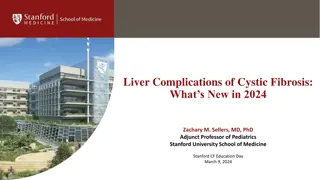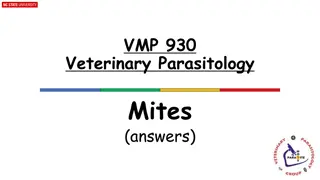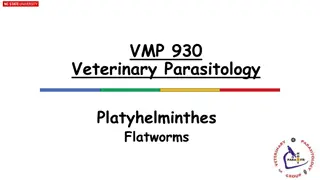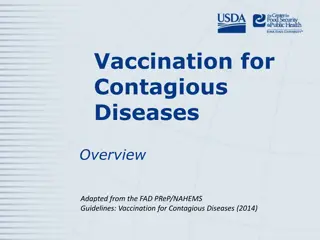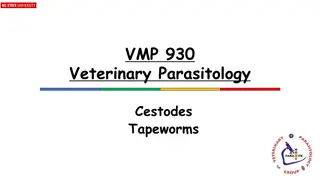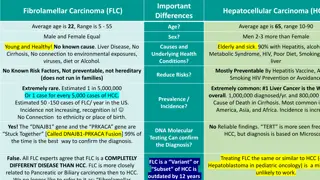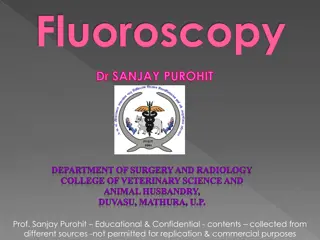Veterinary Parasitology: Liver Fluke Questions and Matching Scenarios
Explore a series of questions and matching scenarios related to liver fluke infections in ruminants, focusing on Fasciola hepatica and related helminth diseases. Discover clinical signs, associations, and key details encompassing different parasitic worms and their impact on animal health.
Download Presentation
Please find below an Image/Link to download the presentation.
The content on the website is provided AS IS for your information and personal use only. It may not be sold, licensed, or shared on other websites without obtaining consent from the author. Download presentation by click this link. If you encounter any issues during the download, it is possible that the publisher has removed the file from their server.
Presentation Transcript
VMP 930 Veterinary Parasitology Liver Fluke Questions
Question Regarding Clinical Signs: what other helminth disease does fascioliasis resemble? (CS: Ruminant Host. Weakness, anemic pallor, bottle jaw.) A. Cyathostominiasis B. Haemonchosis C. Babesiosis D. Toxoplasmosis E. Coccidiosis
Question Matching:Fasciola hepatica and Haemonchus contortus are parasitic worms of ruminants. Match each of these parasitic worms with the appropriate association. C ____ 1. Anemia ____ 2. Nematode B A. Haemonchus contortus B. Fasciola hepatica A ____ 3. Bile ducts ____ 4. Sedimentation ____ 5. Bottle Jaw ____ 6. McMasters A C. Both B C
Question Matching:Fasciola hepatica may present as Acute fascioliasis or Chronic fascioliasis. Match each of these presentation with the appropriate association. B ____ 1. Eggs in feces ____ 2. Adult worms A B A A. Acute fascioliasis B.Chronic fascioliasis B ____ 3. Traumatic hepatitis ____ 4. Stenotic bile ducts ____ 5. Migrating juvenile worms ____ 6. Unwilling to stand / sudden death A
Question What bacterium is associated with Fasciola hepatica and causes black disease in sheep & goats? A. Staphlococcus aureus B. Streptococcus mutans C. Proteus mirabilis D. Clostridium novyi E. Escherichia coli
Question Regarding a goat infection with Fascioloides magna, would one find eggs in a fecal sedimentation ? A. Yes, patent adults in the bile ducts B. No, death by migrating juvenile flukes
Question Matching:Fasciola hepatica and Fascioloides magna are parasites of ruminants. Match each of these parasitic worms with the appropriate association. ____ 1. Sudden death ____ 2. Bile ducts A B A. Fasciola hepatica B. Fascioloides magna C ____ 3. North Carolina ____ 4. Sheep definitive host ____ 5. Goat dead-end host ____ 6. Wet pastures / ponds C C. Both A B
Question Which liver fluke causes a chronic wasting pathology in small ruminants, resulting in decreased productivity in older animals? A. Dicrocoelium B. Paragonimus C. Nanophyetus D. Fascioloides
Question Matching:Fasciola hepatica, Fascioloides magna & Dicrocoelium dendriticum are liver flukes of ruminants. Match each of these parasitic worms with the appropriate association. (some blanks may have more than one letter) B,C ____ 1. Zoonotic ____ 2. Ants C B,C A. Fascioloides B. Fasciola ____ 3. Bile ducts ____ 4. Aquatic vegetation ____ 5. Pennsylvania ____ 6. Sedimentation for sheep C. Dicrocoelium A,B C B,C
Question In goats, which 2 liver flukes can cause sudden death from acute hepatitis due to migrations of juvenile worms? A. Dicrocoelium & Fasciola B. Fasciola & Fascioloides C. Paragonimus & Nanophyetus
Question In sheep, which 2 liver flukes can cause decreased productivity due to chronic damage caused by adult worm activity in the bile ducts? A. Dicrocoelium & Fasciola B. Fasciola & Fascioloides C. Paragonimus & Nanophyetus


